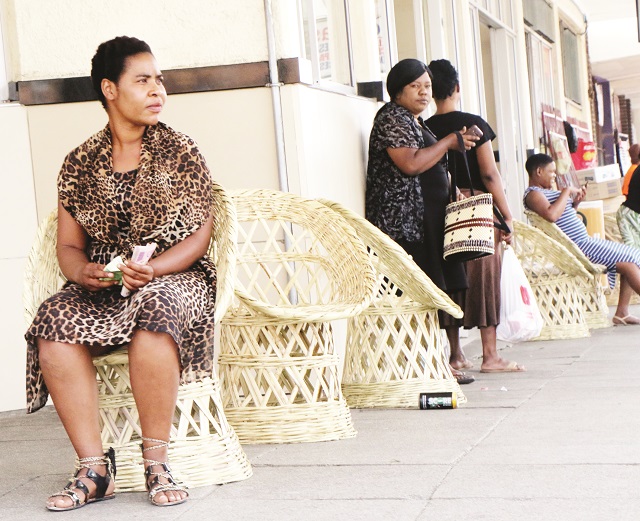EDITORIAL COMMENT: Step up blitz against illegal currency trade

Police in Bulawayo have launched a clampdown on money changers, arresting quite a number in the city on Wednesday.
The street currency traders have been with us since the pre-dollarisation era. In fact, that is the time when their business flourished. Many resigned from formal jobs to start illegal trade in money, while others were the unemployed who saw an opportunity to earn an income, albeit an illicit one. They built houses, bought expensive vehicles and other property.
Dollarisation drove most of them off the streets. Only a few remained, eking a living from small margins they got when buying and selling the US dollar and bond notes for South African rand and Botswana pula.
However, the recent decline in value of the bond note versus the US dollar and the prevailing cash shortage got more dealers back on the streets. Many have resumed selling or “burning” money, to say if one has money in their bank account, say $100 but cannot access it in cash they approach the cash hoarders who would give the account holder the cash while accepting as much as $150 in return in form of a bank transfer.
The Government had little room to clamp down on money changers’ illegal activities largely because the law wasn’t tough enough to facilitate arrests and prosecution. Those caught were only charged for blocking pavements and fined only for them to return to the streets the next hour. The law was therefore not deterrent enough, it was a vague law, not really specific to tackle a serious economic crime.
Bulawayo police spokesperson Inspector Precious Simango said:
“We have launched a campaign targeting illegal money changers among other cash barons. I cannot immediately confirm the number of people we have arrested so far but the raids will continue as we try to stop the hoarding of cash.”
The clampdown came after a bad week for the country that saw some basic commodities disappearing from supermarkets and the little that were available being sold at double their prices a fortnight ago.
Indeed it was very long in coming, but is very welcome even at this late stage. These traders are saboteurs who want to run our economy into the ground just for their own personal benefit. They must be driven off the streets so that currency trade returns to the formal banking system.
However, running after the street runners without running after the powerful among us who provide the osipatheleni with wads of new bond notes is targeting the wrong people. There are senior people working for financial institutions, men and women who have access to large sums of money which they are able to take and give to their street runners who then do the donkey work for them, risking arrest. Some of the powers behind the illegal currency are actually senior politicians and other people of substance.
These must be targeted too in the police’s efforts to extinguish illegal currency trading and arrest the dire consequences the activity is causing to the economy.
Police can be able to get their identities by interrogating the street runners. When they get their names, they would proceed to arrest the real currency dealers and get them prosecuted and punished accordingly. This will cut the flow of money into the underworld and with it, the illegal currency market.
We pointed out earlier that law enforcement agencies did not have enough ammunition to tackle money changers as there was no specific law. That was addressed yesterday when the Government gazetted regulations that criminalise cash vending.
Any currency trader must now secure the permission of the exchange control authority which is the Reserve Bank of Zimbabwe. Police, thanks to Statutory Instrument 122A of 2017 — Exchange Control (Amendment) Regulations 2017 (No 5), have been empowered to arrest money peddlers and seize whatever currency involved.
President Mugabe amended the Exchange Control Regulations of 1996, published in Statutory Instrument 109 of 1996, in particular section 2 of the principal regulations. The amendment was done in terms of Section 2 of the Exchange Control Act (Chapter 22:05).
According to the changes, Section 40 (Orders) of the principal regulations was amended by the insertion of subsection (2c) after subsection (2b).
The inserted subsection relates to dealing in currency and provides that: “an authorised officer or a police officer acting to enforce any order — (2c) (a) may, for the purpose of holding the currency as exhibit in subsequent prosecution, seize any currency upon a reasonable suspicion that the possessor thereof is dealing in it unlawfully, that is, in contravention of any order or any provision of the Act or these regulations by virtue of which the order is made.”
Now that they have the legal backing they lacked all these years, we look forward to police getting down to work in a more robust way to clean the streets and the economy at large of osipatheleni. They have damaged the economy enough and cannot continue. We hope that this time there would be no loophole for the traders to capitalise on.
At the same time, we hope that the ongoing economic recovery efforts will bear fruit, so that industries work at higher capacities, exports grow and with them foreign currency inflows. When the economy generates more foreign currency, we will have much of it in the formal market and importers would simply have to walk in a bank to apply for any currency of their choice and get it immediately. There would be no need for them to seek the services of the illegal money traders. Also, we hope that the cash shortage will be resolved soon, thus reduce bank queues and extinguish the currency “burning” phenomenon.











Comments